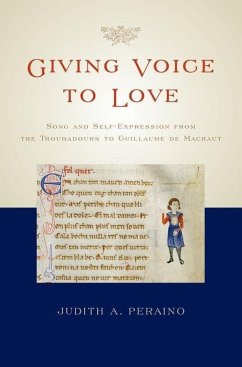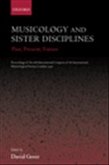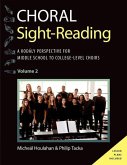Grafting musicology and literary studies together in an unprecedented manner, Giving Voice to Love: Song and Self Expression from the Troubadours to Guillaume de Machaut investigates the "courtly love" songs of the twelfth to late fourteenth centuries and explores the paradoxical relationship of music and self expression in the Middle Ages. While these love songs often conceive and express the autonomous subject - the lyric "I" represented by a single line of melody - they also engage highly conventional musical and poetic language. This paradox was understood by the poets and became the basis for irony, parody and intertextual referencing, which instilled the lyrics with a characteristic self-consciousness that reflected the unstable conditions for self-expression. Author Judith Peraino illustrates that similar operations are at work in the musical settings. Examining moments where voice, melody, rhythm, form, and genre come dramatically to the fore and seem to comment on music itself, Giving Voice to Love strives not only to hear self-expression in these love songs, but to understand how musical elements give voice to the complex issues of self and subjectivity encoded in medieval love. Through its approach to the exploration of "courtly love" songs, Giving Voice to Love serves as a model for methodological integration and provides musicologists, literary scholars and medieval historians with a common analytical ground.
The lyrics of medieval "courtly love" songs are characteristically self-conscious. Giving Voice to Love investigates similar self-consciousness in the musical settings. Moments and examples where voice, melody, rhythm, form, and genre seem to comment on music itself tell us about musical responses to the courtly chanson tradition, and musical reflections on the complexity of self-expression.
The lyrics of medieval "courtly love" songs are characteristically self-conscious. Giving Voice to Love investigates similar self-consciousness in the musical settings. Moments and examples where voice, melody, rhythm, form, and genre seem to comment on music itself tell us about musical responses to the courtly chanson tradition, and musical reflections on the complexity of self-expression.








